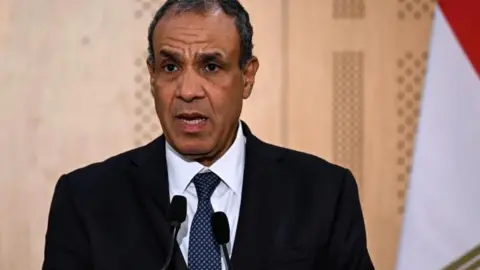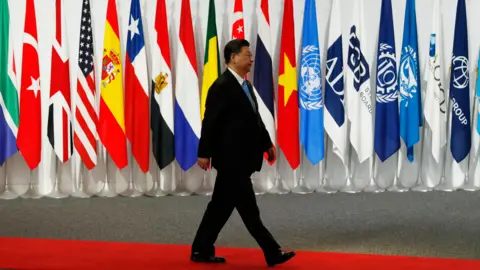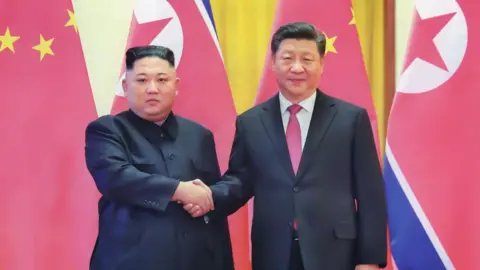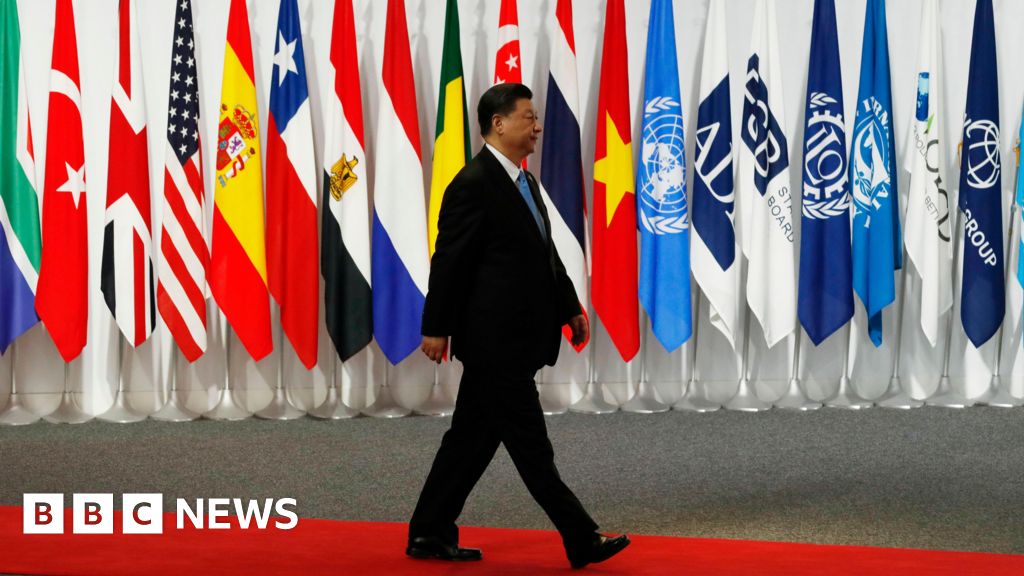After outfoxing Egypt on the diplomatic stage for more than a decade, Ethiopia is set to officially inaugurate one of the world's biggest dams on a tributary of the River Nile, burying a colonial-era treaty that saw the UK guarantee the North African nation the lion's share of its water.
The dam - built on the Blue Nile at a cost of about $5bn (£3.7bn), with a reservoir roughly the size of Greater London - has led to a surge in Ethiopian nationalism, uniting a nation often polarised along ethnic lines and mired in conflict.
Ethiopians may disagree on how to eat injera [their staple food], but they agree on the dam, Moses Chrispus Okello, an analyst with the South Africa-based Institute for Security Studies think-tank, told the BBC.
Named the Grand Ethiopian Renaissance Dam (GERD), it is Africa's largest hydro-electric plant, raising hopes that it will meet the energy needs of Ethiopia's 135 million population and provide a means to boost foreign currency earnings through electricity exports.
Ethiopia anticipates selling electricity to neighbouring countries, including Kenya and Djibouti, and aims to establish a transmission network extending to the Middle East.
However, for Egypt, the dam represents a significant threat to its water supply, crucial for sustaining its 107 million citizens who depend heavily on the Nile. With 93% of Egypt being desert, the Nile remains a lifeline.
Prominent Egyptian geologists have voiced concerns that the GERD could exacerbate water shortages, given its immense capacity to store water typically flowing to Egypt. This apprehension is intensified by the historical context of Egypt's reliance on a treaty that no longer aligns with the current geopolitical landscape.
Past negotiations have proven challenging, with Ethiopia staunchly pursuing its developmental objectives despite diplomatic pressures and threats. The GERD's completion signals a shift in Nile water politics that could diminish Egypt's historically privileged status over the river.
Ethiopia regards the dam as a symbol of national achievement funded significantly by both citizens and diaspora support. Conversely, Egypt's attempts to negotiate terms have been met with resistance, as Ethiopia emphasizes its sovereignty and responsibility for its development initiatives.
The impending inauguration of the dam has prompted heightened rhetoric from Egypt, with officials declaring it an existential threat. Yet, there remains an underlying sentiment among some Egyptian experts that armed conflict over the Nile is unlikely, as diplomatic channels continue to be explored.
Looking forward, Ethiopia's ambitions extend beyond the dam as it envisions regaining access to the Red Sea— a geopolitical aspiration that intertwines with its rising nationalistic sentiments. The success and implications of the GERD may well redefine relationships across the Nile basin for years to come.





















